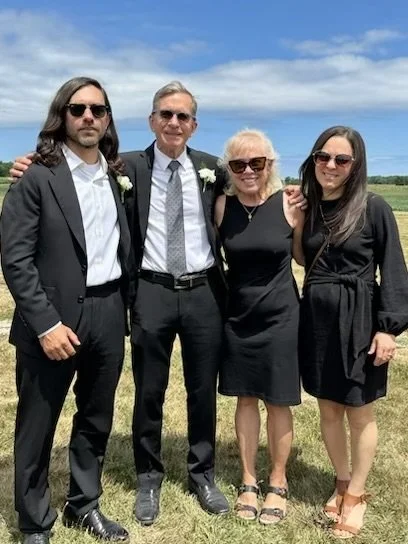Wrightwood Flash Flood - Part 2
Last time I reported on the Christmas Eve flash flood that dumped tons of mud all over Wrightwood and completely took out a few dozen houses. In the midst of this tragedy, it was a joy watching people rally to help their neighbors. We were the recipients of almost 100 man-hours of assistance for which we are extremely grateful. Beyond this, Annette and I worked for about a week straight clearing the remaining mud, and we’re finally back to normal – minus all the plants in the garden.
In the five years since we bought our house, we’ve experienced:
The 2020 Covid shutdown
The 2022 Sheep Fire that forced our evacuation
The 2023 blizzard that pummeled us with five feet of snow and trapped us for nine days
Tropical Storm Hillary – also in 2023 – that took out the main road into town
The 2024 fire that came within 50 feet of our house and prompted another evacuation
And now the 2025 Christmas Eve flash flood caused by 10+ inches of rain within 24 hours.
Oh, and then there was the small avalanche just up the mountain from our house, but thankfully it had little impact. And I can’t leave out the bear that regularly raids our neighbors’ trash cans, the rattlesnakes, the coyotes, at least one mountain lion, and the bobcat. Plus we experience power outages and loss of city water more often than we’d like. And did I mention that we are ½ mile away from the San Andreas Fault?
I guess we live a lot “closer to the land” than we did in suburban Atlanta.
A creative metal worker in town is making a fortune selling Christmas tree ornaments commemorating our many calamities.
Several of you have commented on the numerous challenges we’ve faced. Although no one has openly asked us, I suspect some of you wonder if we think we made a mistake moving here.
Absolutely not! We have no doubt that God led us here. I firmly believe that, if you commit an important decision to the Lord and make a prayerful, responsible decision, you have no choice but to interpret any and all subsequent events as part of God’s will.
There are five reasons why looking over your shoulder is a bad idea:
Second-guessing dishonors God – It shows you don’t really trust that he acted like a loving father and that he failed to lead you down the right road.
You are not at the end point – Even if you face negative circumstances today, the story may not be over. Things might look grim now, but they could improve or even do a complete 180 down the road
Second-guessing overlooks the “God Factor” – Even though we want important decisions to result in smooth sailing, God may be using the unfortunate developments to help you grow in new ways. Some of the most important lessons I’ve learned have surfaced from rough waters.
You are probably comparing your current situation against an idealized version of the alternatives – Things could have turned out as bad or even worse had you made a different decision.
Second-guessing is useless – You can’t unscramble an egg or un-ring a bell. Lamenting your decision will only distract you from picking up the pieces and moving forward.
We love living in Wrightwood with all the pluses and minuses. Do we regret our decision to move here? Not at all!
+++++++++++++++
Do you truly believe that God will lead you to the right decision when you responsibly and prayerfully seek his will?
Which of the five reasons for not second-guessing God are the most compelling to you?
How hard is it for you to trust God when you face unforeseen calamities?
God is our refuge and strength, an ever-present help in trouble. Therefore we will not fear, though the earth give way and the mountains fall into the heart of the sea, though its waters roar and foam and the mountains quake with their surging – Psalm 43:103 (NIV)























